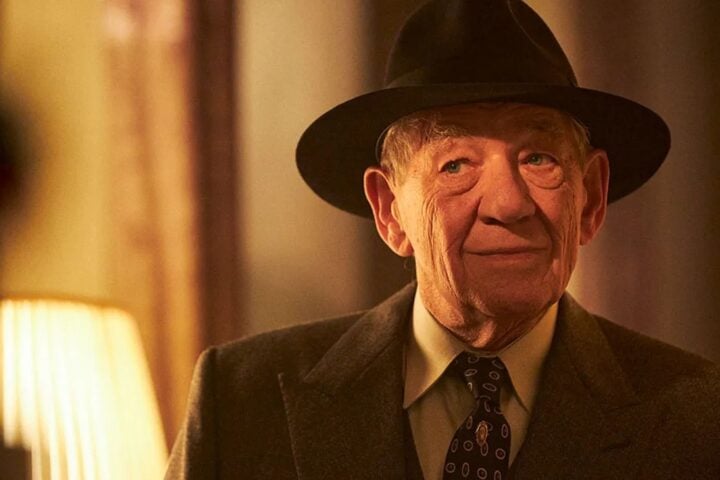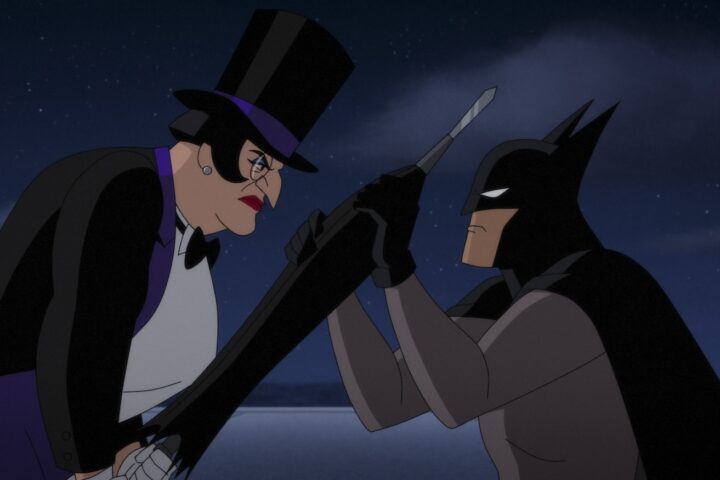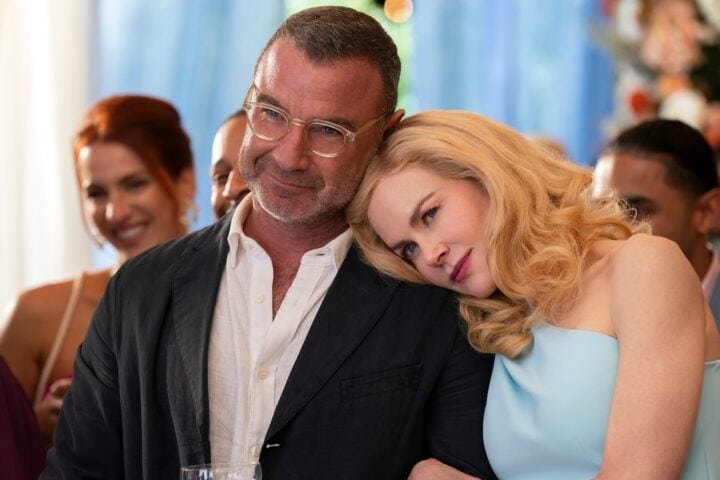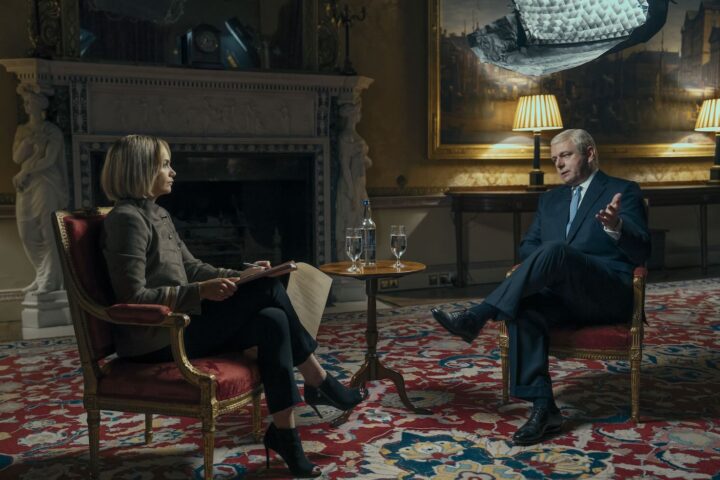Picking up where Matt Reeves’s The Batman left off, HBO’s The Penguin finds the city of Gotham reeling from the Riddler’s attacks, with entire neighborhoods reduced to rubble. This is a golden opportunity for the city’s crime syndicates to take control, but with Carmine Falcone out of the way, the underworld is also in a state of disarray. A power vacuum has opened up, and Oswald “The Penguin” Cobb (Colin Farrell) is determined to fill it.
Even with a mouthful of crooked, golden teeth and basically his character’s entire face on loan from the prosthetics department, Farrell still manages to convey Oz’s full personality. Every time that Oz is caught in a tight spot—and it happens at least once an episode—we can see the mendacious intellect shining in his eyes as he comes up with the right lie at the right moment to save his skin. In his less imperiled moments, he also evinces an almost boyish quality—as if the little kid with the busted leg were still in there, harboring dreams of becoming a big man.
The problem is that no one else in the underworld has any interest in giving Oz a seat at the grown-ups’ table. His position within the Falcone family has only fallen since the death of Carmine, whose old right-hand man, Johnny Vitti (Michael Kelly), is no fan of Oz’s. He might have a better chance of ingratiating himself with Falcone’s daughter, Sofia (Cristin Milioti), who has just returned from Arkham Asylum with an eye to taking over the family business. But, Oz being Oz, he also pays a visit to Salvatore Maroni (Clancy Brown), the head of Gotham’s other major crime family, to see if a deal can be struck there instead.
The war between these wo families and Oz’s attempts to play both sides make for an intermittently engaging crime drama. But the problem with The Penguin is also the problem with the Penguin. He’s a middleman, a small-time boss, a “bargain basement hustler” in the words of one of his gangland rivals—complex enough to make for a compelling villain but lacking the depth required of an antihero who can carry an entire series.
The Penguin leans on other characters—like Victor (Rhenzy Feliz), the fresh-faced youngster who becomes Oz’s ward after losing everything in the Riddler’s attack—to pick up the slack. It’s clear that Oz sees something of himself in the boy, whose speech impediment has caused others to underestimate him. But Victor never really comes to feel like a full character in his own right: The tension between his desire to remain innocent and the appeal of criminal power never finds a real inflexion point and his storyline simply plods forward with a sense of inevitability.
Which is a shame, because Victor and Oz’s relationship taps into one of The Penguin’s richest ideas: the fraught, romantic notion of gangsters as neighborhood patriarchs who provide the justice and care that the underclasses don’t receive from legitimate sources. It’s an ideal that the characters bond over, and the sort of dream that could be shattered in a truly devastating way in a more deftly dramatized story. But here it amounts to a few too many speeches from Oz about “the way of the world” and a thinly written tale of innocence lost revolving around Victor.
It’s Sofia, though, who ends up being the show’s most captivating character, in no small part because, as played by Milioti, she’s a raven-haired, mad-eyed figure that could have come strutting out of a gothic novel on a pair of pointed black heels. Even if she’s done no favors by a mid-season flashback episode that all genre shows with prestige ambitions now seem obligated to include—and one which, as is often the case, brings the plot to a screeching halt—Sofia is such an intense and volatile character that the tension rises whenever she walks into a room.
And while Gotham itself has made for a compelling character in many Batman tales across various mediums, here it struggles to hold a candle to Sofia’s memorably macabre essence. In the beautiful shot that opens the first episode of the series, Oz watches the sunrise burning orange in the sky while the rest of the city is draped in pitch-black shadows. But after this, The Penguin’s Gotham never once conjures the nightmarish atmosphere of Reeves’s film.
Oz’s prosthetics fit The Batman’s exaggeratedly gothic aesthetic to a tee, but they sometimes come off as a goofy intrusion in the otherwise realistic world of The Penguin. And there was an air of mystery and moral ambiguity to the shadow-lurking schemer Farrell played in the film. But as we watch him grunt his way through eight episodes of this series, that mystique quickly fades and he becomes just another player in just another run-of-the-mill mob story.
Since 2001, we've brought you uncompromising, candid takes on the world of film, music, television, video games, theater, and more. Independently owned and operated publications like Slant have been hit hard in recent years, but we’re committed to keeping our content free and accessible—meaning no paywalls or fees.
If you like what we do, please consider subscribing to our Patreon or making a donation.






